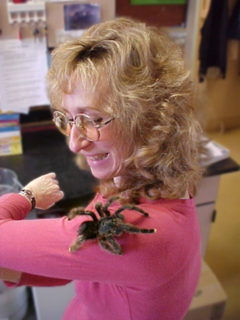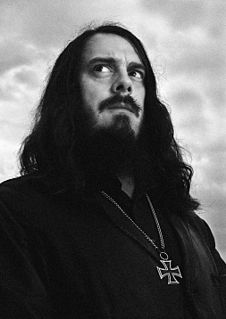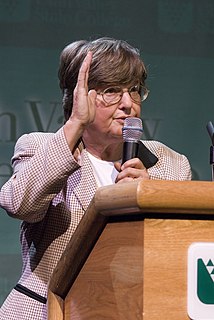A Quote by Leo Tolstoy
In the evolution of knowledge-mistaken and unnecessary beliefs are forced out and supplanted by truer and more necessary knowledge. So too in the evolution of feelings, which takes place by means of art. Lower feelings-less kind and less needed for the good of humanity-are forced out and replaced by kinder feelings which better serve us individually and collectively. This is the purpose of art.
Related Quotes
Faith is the commitment of one's consciousness to beliefs for which one has no sensory evidence or rational proof. When man rejects reason as his standard of judgement, only one alternative standard remains to him: his feelings. A mystic is a man who treats his feelings as tools of cognition. Faith is the equation of feelings with knowledge
Anthropomorphism is such an interesting concept. It means projecting human thoughts and emotions onto an animal. Which implies that thoughts and feelings belong to humans alone. Of course, if you believe in evolution, or if you believe in the Bible, that's not so. Both evolution and the Bible tell us that we're part of a family.
Every work of art causes the receiver to enter into a certain kind of relationship both with him who produced the art, and with all those who, simultaneously, previously, or subsequently, receive the same artistic impression. Art is a human activity- that one man consciously by means of certain external signs, hands on to others feelings he has lived through, and that others are touched by these feelings and also experience them.
The institutions of human society treat us as parts of a machine. They assign us ranks and place considerable pressure upon us to fulfill defined roles. We need something to help us restore our lost and distorted humanity. Each of us has feelings that have been suppressed and have built up inside. There is a voiceless cry resting in the depths of our souls, waiting for expression. Art gives the soul's feelings voice and form.
Darwinian evolution is slow and gradual, step by step. Such an evolution can explain micro-evolution but not macro-evolution. For example, how did the eye evolve? The idea behind Darwinism is that organisms adapt, and that nature selects only those genetic changes which are the mutations that serve a good purpose for adaptation. So taken this way, the eye cannot develop gradually because one-thousandth or one-millionth of an eye would be of no value for survival. So generally this question rules out Darwinism as an adequate theory for macro-evolution.
The more we understand what is happening in the world, the more frustrated we often become, for our knowledge leads to feelings of powerlessness. We feel that we are living in a world in which the citizen has become a mere spectator or a forced actor, and that our personal experience is politically useless and our political will a minor illusion.
I was forced, through seeing the error of their foundation, to abandon all belief in every religion which had been taught to man. But my religious feelings were immediately replaced by the spirit of universal charity — not for a sect, or a party, or for a country or a colour — but for the human race, and with a real and ardent desire to do good.
In sorting out my feelings and beliefs, there is, however, one piece of moral ground of which I am absolutely certain: if I were to be murdered I would not want my murderer executed. I would not want my death avenged. Especially by government--which can't be trusted to control its own bureaucrats or collect taxes equitably or fill a pothole, much less decide which of its citizens to kill.




































